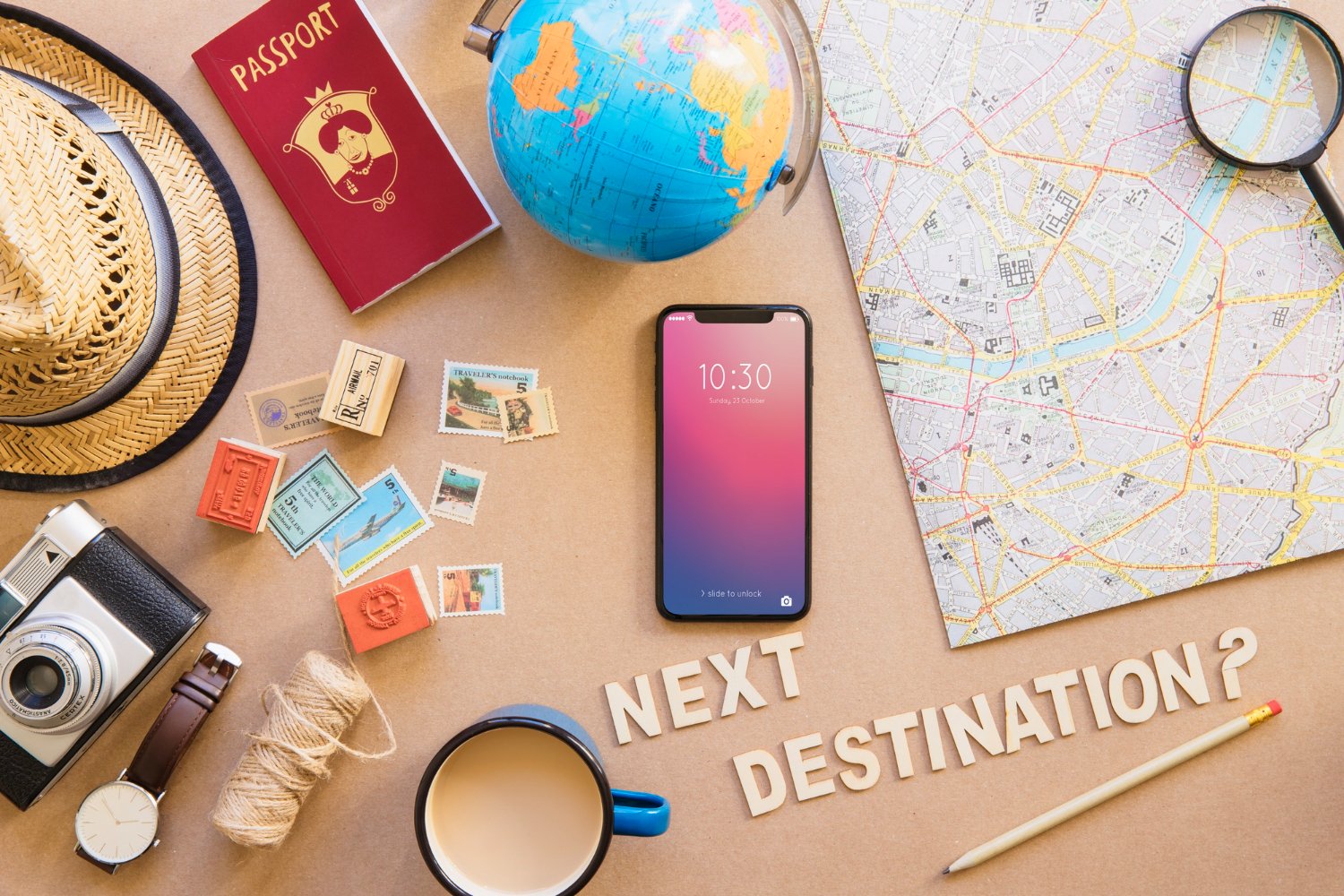Whether it’s ticking a dream destination off your bucket list or just going on a relaxing staycation out of the city, travelling is always better with friends. It’s a chance to bond over shared experiences, discover new places together, and create stories you’ll laugh about for years.
But let’s face it—group travel isn’t always smooth sailing. From mismatched budgets to clashing personalities, navigating the dynamics of traveling with friends can sometimes feel like a balancing act.
The good news? With a bit of planning and teamwork, you can sidestep the common hiccups and focus on what matters—having an amazing time. Here’s how to keep the fun rolling, tackle any challenges like a pro, and turn your trip into a memory-making masterpiece that strengthens your friendships instead of testing them.
1. Agree on a Destination and Set Shared Goals for the Trip

Start by discussing everyone’s must-see spots and goals for the trip. Is this a cultural trip, a beach vacation, an adventure-filled escape, or a mix of everything? Agreeing on the main purpose helps set the tone and reduces conflicts.
It’s important to establish a balance of activities that satisfy everyone’s needs and interests. Sometimes, having a “highlights list” where everyone contributes their top one or two must-dos can ensure everyone’s voice is heard.
Also read: Top 5 places to visit in Ireland in December
2. Establish a Flexible Budget Upfront

Money is one of the most common sources of tension in group travel, so it’s essential to address it early. Have an open conversation about everyone’s budget before booking anything. While some friends might be all-in for budget options, others may lean toward a bit of luxury. Finding a middle ground that satisfies everyone is key to avoiding unnecessary stress.
For example, if you’re planning a trip to Dublin, consider staying at a budget hotel in Dublin that offers group accommodation. Look for options like visitor suites furnished with multiple beds, a cozy living area, and even a dining and kitchen space—perfect for striking the balance between affordability and comfort.
To keep finances organized during the trip, use apps like Splitwise or Venmo to track shared expenses. This ensures transparency, keeps everyone accountable, and makes settling up at the end hassle-free.
3. Designate Roles and Delegate Responsibilities
Everyone has strengths and weaknesses when it comes to planning. Assign different roles to match your friends’ skills or interests. For example, one person could be the logistics coordinator (handling bookings and itinerary), while another could be in charge of scouting out the best restaurants or local attractions.
Delegating roles gives each person ownership of the trip and avoids “too many cooks in the kitchen” syndrome, where everyone tries to take charge and ends up clashing.
4. Balance Group Activities with Solo Time

Spending every moment together can lead to burnout and conflict, especially on a long trip. Plan a few blocks of “solo time” where people can go off and do their own thing—whether it’s exploring a museum, grabbing a coffee, or relaxing at the hotel. This helps everyone recharge and gives a sense of independence.
Encourage friends to split into smaller groups occasionally. Not everyone needs to do everything together, and having mini-groups explore specific interests helps cater to everyone’s desires without compromising the group dynamic.
5. Set Clear Expectations for Daily Schedules

Some people are early risers ready to explore at dawn, while others prefer leisurely mornings. Discuss each day’s itinerary the night before and agree on a loose plan to avoid misunderstandings.
Be realistic about start times and travel durations to avoid setting yourself up for frustration. Flexibility is essential; plans may need to shift due to weather, local events, or simply someone needing a slower pace that day.
6. Communicate Openly and Address Issues Early
In any group, minor irritations can quickly escalate if they’re not addressed. Don’t let small annoyances fester. If someone feels uncomfortable or frustrated, create a judgment-free environment where everyone feels comfortable voicing concerns respectfully.
Keep a positive attitude and try to address any issues as they arise. A lighthearted approach can often defuse tension, helping everyone to see the bigger picture and enjoy the trip.
7. Plan for Downtime and Relaxation

Scheduling non-stop activities can lead to exhaustion, especially when traveling in a group. Make sure your itinerary includes downtime, whether it’s a beach day, a spa visit, or an afternoon at a cozy café. This provides everyone with a break from sightseeing and helps recharge the energy for more activities.
Sometimes the best memories come from spontaneous moments. Leaving a bit of unscheduled time lets you all enjoy unexpected discoveries or go off-script for a relaxed, memorable experience.
8. Be Considerate of Each Other’s Boundaries and Preferences
Respecting boundaries is key to a harmonious trip. If someone isn’t keen on a particular activity or type of food, be open to compromise or finding alternatives. Avoid pressuring friends into activities that make them uncomfortable.
Recognize that different people have varying limits. Some may thrive in high-energy activities, while others need quieter time to recharge. Honoring these boundaries leads to a more positive experience for everyone.

9. Embrace Humor and Go with the Flow
Travel mishaps are inevitable. Missed trains, wrong turns, or weather-related disruptions can dampen the mood—unless you can laugh them off. Keep a sense of humor, stay open to unexpected changes, and be adaptable.
Remember that flexibility is essential to group travel. Going with the flow helps everyone feel more relaxed and resilient, making it easier to enjoy each moment without sweating the small stuff.
10. End the Trip with Reflection and Appreciation

Take a moment to reflect on the trip and express appreciation for each other’s company and contributions. Consider hosting a final meal or gathering to celebrate the highlights and enjoy a moment of gratitude.
Sharing and listening to each person’s favorite moments can help solidify the good memories, leaving everyone with positive feelings and renewed friendships.
Group travel with friends is as rewarding as it is challenging. Each friend brings something unique to the trip, and together you’ll create shared experiences that bring you closer, rather than allowing minor bumps to overshadow the joy of exploring new places together.
Author Bio: Carmina Natividad is a foodie and travel buff who enjoys writing articles about travel and money-saving. Aside from sharing travel hacks, she spends most of her time playing the piano and guitar. If you want to know more about budget travel and affordable hotel alternatives, visit DCU Rooms.



